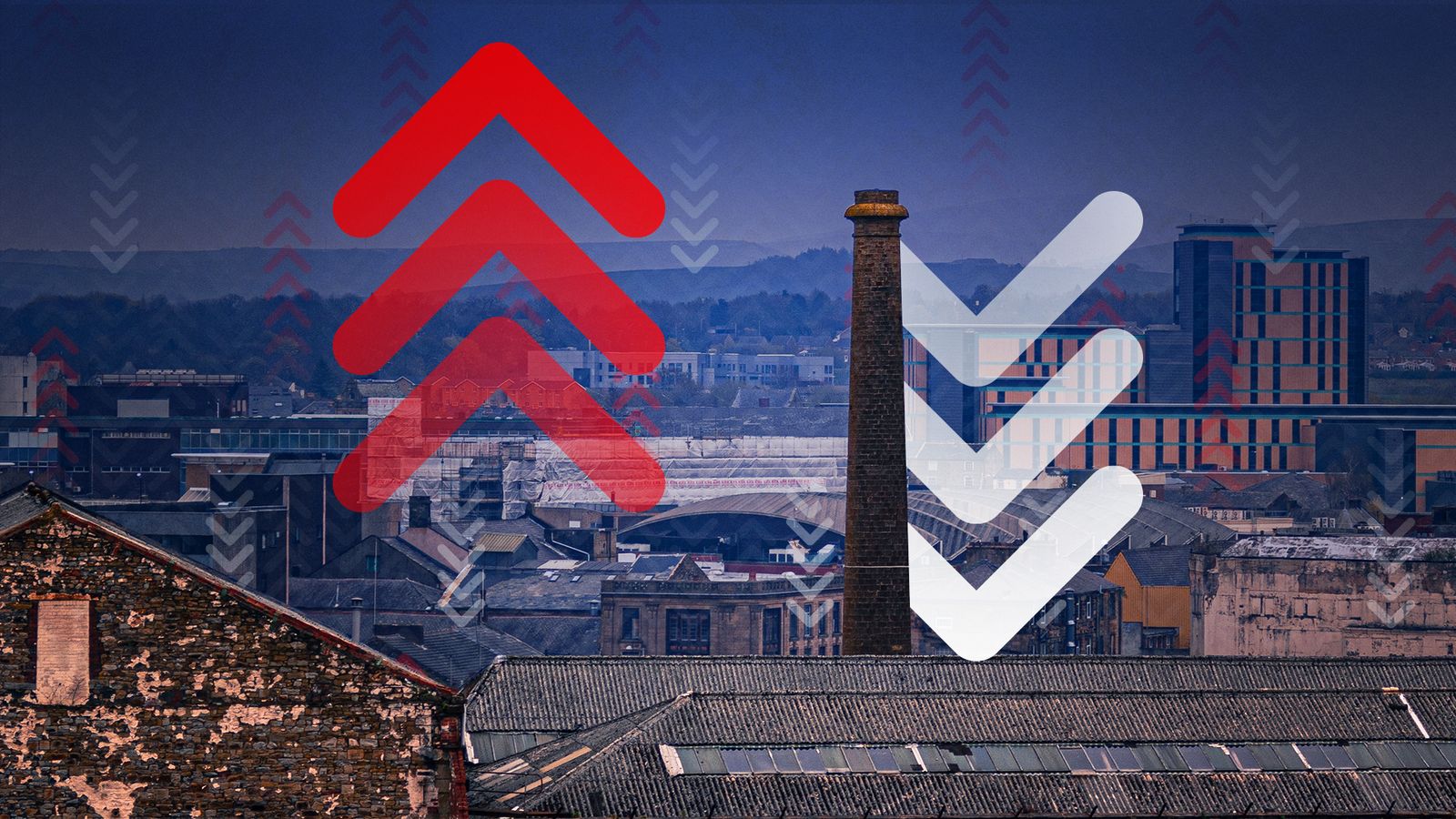close video Carmakers being questioned over reports of China forced labor
Atlas Organization organizer Jonathan Ward discusses the WSJ piece detailing how automakers are facing Senate inquiry into possible ties to Uyghur forced labor on Maria Bartiromos Wall Street.
A Senate committee is investigating several major automakers following a report linking their supply chains to the use of Uyghur forced labor for car components made in China. Uyghurs are a Muslim minority in the Xinjiang Uyghur Autonomous Region in northwest China.
Senate Finance Committee Chairman Ron Wyden (D-Ore.) sent letters to eight major automakers requesting more information about their supply chains and the potential use of forced labor through imports of parts such as batteries, wiring, and wheels. The automakers contacted by Wyden include Ford, General Motors, Honda, Mercedes-Benz, Stellantis (which includes brands like Fiat, Chrysler, Dodge, and Jeep), Tesla, Toyota, and Volkswagen.
"Unless due diligence confirms that components are not linked to forced labor, automakers cannot and should not sell cars in the United States that include components mined or produced in Xinjiang," Wyden wrote. "The United States considers the Chinese government’s brutal oppression of Uyghurs in Xinjiang an ‘ongoing genocide and crimes against humanity.’"
Wyden's letters to the eight automakers requested a response by Jan. 13, 2023, which indicates the issue may be a focus for the panel after the new Congress convenes on January 3rd. Massive and expanding links
Ethnic Uyghur demonstrators set fire to a makeshift Chinese flag during a protest against China, near the Chinese consulate in Istanbul, Turkey Dec. 4, 2022. (Reuters/Dilara Senkaya / Reuters Photos)
DHS UNVEILS STRATEGY TO BLOCK GOODS MADE BY UYGHUR FORCED LABOR IN CHINA
The Senate Finance Committee's inquiry follows a report by the Helena Kennedy Centre for International Justice at Sheffield Hallam University that found numerous automakers were linked to Chinese companies operating in Xinjiang.
The extensive report was compiled by a team of researchers over the course of six months and found "massive and expanding links between western car brands and Uyghur abuses, in everything from the hood decals and car frames to engine casings, interiors and electronics."
UN REPORT CITES ALLEGED ‘PATTERNS OF ABUSE’ IN CHINA'S TREATMENT OF UYGHUR MINORITY
The report urges car companies to:Map their supply chains to root out forced labor; stop sourcing materials from Xinjiang;Remove their supply chains from regions where Uyghurs are repressed; andPublicize decisions to terminate procurement relationships over forced labor concerns to alert other industry actors about the problems.Automakers respond
Tesla China-made Model 3 vehicles are seen during a delivery event at its factory in Shanghai, China January 7, 2020. (Reuters/Aly Song / Reuters Photos)
ELON MUSK SHOOTS DOWN REPORT THAT TESLA WILL EXPORT CHINA-MADE CARS TO THE US
Several of the automakers have responded to the allegations that their supply chains include the use of Uyghur forced labor.
Mercedes-Benz told the team of investigators from the Helena Kennedy Centre for International Justice at Sheffield Hallam University that the luxury automaker will follow up on the concerns raised. The company called on its suppliers to adhere to its Principles of Social Responsibility and Human Rights.
Volkswagen informed the researchers that it has found no evidence that employees at the Xinjiang plant it utilizes through a joint venture are forced to work there, and it isn't aware of cases where Uyghur employees were or are in internment camps.
Honda provided a statement to FOX Business that read: "Honda expects our suppliers to follow our Global Sustainability Guidelines with respect to labor. This increasingly strengthens the confirmation of supplier ESG compliance which is coordinated at a global level. As with other inquiries from Capitol Hill, Honda will work with policymakers on these important issues."
General Motors told the Wall Street Journal that it prohibits forced labor and abusive treatment of workers in its supply chain, while Stellantis responded that it's investigating the report's findings.
Telsa, Toyota, and Ford did not respond to requests for comment from Fox Business prior to the deadline for this story.Uyghur Forced Labor Protection Act
Activist holds placard during No Beijing 2022 protest. Supporters of Tibet, Hong Kong, Uyghurs and Anti-CCP activists gathered opposite BBC Broadcasting House in London to call out BBC to boycott Beijing 2022 Olympic Games. (Thomas Krych/SOPA Images/LightRocket via Getty Images / Getty Images)
HACKED XINJIANG FILES REVEAL CHINA'S UYGHUR GENOCIDE DETAILS: ‘JUST KILL THEM’
In his letters, Wyden asked the automakers whether they have mapped their supply chains and those of their sub-suppliers to determine whether raw materials, mining, processing, and parts used are linked to Xinjiang. He also inquired about whether those automakers have ever had goods detained, excluded, or seized by U.S. Customs and Border Protection under the terms of the Uyghur Forced Labor Protection Act (UFLPA).
The UFLPA was signed into law by President Joe Biden in December 2021 after it passed Congress with bipartisan support. It established a rebuttable presumption that any goods made in Xinjiang are the product of forced labor and subject to import restrictions. Wyden's letters noted that this provision "protects American companies and consumers from unwittingly perpetuating human rights abuses abroad."
The law requires the seizure of goods from companies subject to Withhold Release Orders upon inspection by Customs and Border Protection (CBP). Since the law went into effect, CBP has seized several shipments of goods believed to have links to Chinese companies using Uyghur forced labor.
Chinese President Xi Jinping is seen at the end of the Chinese Communist Party’s 20th Party Congress on a giant screen a commercial district of Hangzhou in eastern China’s Zhejiang province on Sunday, Oct. 23, 2022. (Chinatopix via AP / AP Newsroom)
FORD, CHINESE FIRM MAY BUILD US BATTERY PLANT: REPORT
Since at least 2014, the People's Republic of China has allegedly been engaged in the systemic repression of Uyghurs and other ethnic minorities in the western region of Xinjiang. The oppressed groups have been subject to mass detention, pervasive surveillance, and other human rights abuses. China claims that mass incarcerations and surveillance in Xinjiang are necessary for the purpose of counterterrorism and that camps in the region provide vocational training.
In the waning days of the Trump administration, then-Secretary of State Mike Pompeo designated the alleged crimes against humanity as a "genocide" – a designation that current Secretary of State Antony Blinken affirmed during his Senate confirmation hearings. Several countries including Canada, the Czech Republic, France, the Netherlands, and the United Kingdom, among others, have taken steps to condemn China for crimes against humanity and genocide in Xinjiang.
CLICK HERE TO READ MORE ON FOX BUSINESSTicker Security Last Change Change % TSLA TESLA INC. 109.10 -14.05 -11.41%GM GENERAL MOTORS CO. 33.32 -0.51 -1.51%F FORD MOTOR CO. 11.20 -0.17 -1.54%TM TOYOTA MOTOR CORP. 136.16 -0.98 -0.71%HMC HONDA MOTOR CO. LTD. 22.92 -0.20 -0.87%STLA STELLANTIS NV 14.00 -0.05 -0.36%VWAPY VOLKSWAGEN AG ADR 12.31 +0.08 +0.65%MBGAF MERCEDES-BENZ GROUP AG 65.9 +0.86 +1.32%
GET FOX BUSINESS ON THE GO BY CLICKING HERE close video China economy devastated by ‘overwrought’ lockdowns: Kevin Roberts
Heritage Foundation president Kevin Roberts reacts to China sending warplanes towards Taiwan and ending its COVID quarantine mandate for incoming travelers on ‘Mornings with Maria.’








